
Born on the 24th of June 1987 in Rosario, Lionel Andres Messi was introduced to the world and would go on to become the greatest footballer to ever grace the planet. Argentina had struck gold, but they did not know it yet.
Despite moving from Argentina to Spain as a young teenager at 13 years old, Messi chose to represent Argentina on the international stage and rejected the opportunity to play for La Roja. For the rest of his international career, Messi would be at odds with Argentinian ultras who would hold him on the tightest of leashes. Ongoing criticisms of La Pulga from the Argentinian public would be that Messi’s move away from South America at such a young age made him ‘less Argentinian’ than the rest of them.
Although Messi dominated football at club level for years on end, his career for La Albiceleste was initially less promising. Making his debut for the Argentinian national team in August of 2005, Messi looked to become one for the future for ‘The White and Sky Blue’ but his debut turned into a nightmare as he saw a red card 48 seconds after coming on as a sub. Despite his unparalleled and unprecedented talent on the pitch, Messi failed to deliver any silverware to Argentina after being knocked out and disappointed repeatedly in Copa America tournaments and in the World Cup.
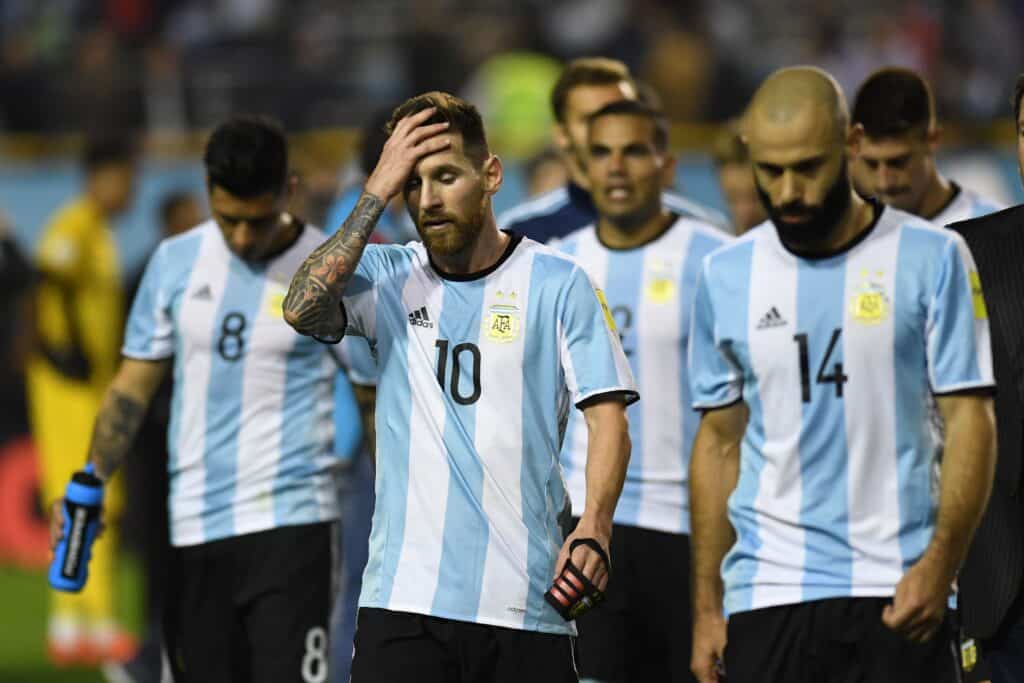
In 2016 after Argentina’s loss in the Copa America final to Chile the criticism and condemnation of Leo Messi’s international career reached an absolute pinnacle. After missing a penalty in the penalty shootout in the final of the 2016 Copa America, Messi and La Albiceleste had lost their fourth major final in nine years. After back to back losses in the final to Chile in the 2015 and 2016 editions of the Copa America, Messi muttered infamous words that would seemingly tarnish his reputation with Argentinian football fans forever. Following the defeat, Messi claimed that “for [him], the national team is over” and that he had “done all [he could]” to win Argentina their first major trophy since 1993.
Shocked. Disappointed. Infuriated. Messi had seemingly eradicated any sort of respect he had from fans of La Albiceleste and maybe even football fans worldwide. He was a quitter, he gave up, he was public enemy #1. Instead of fighting for Argentina and attempting to reclaim their place in football glory, Messi gave up and would return to Barcelona where things were much easier and less challenging for him. At least this is what Argentinian football fans thought at the time.
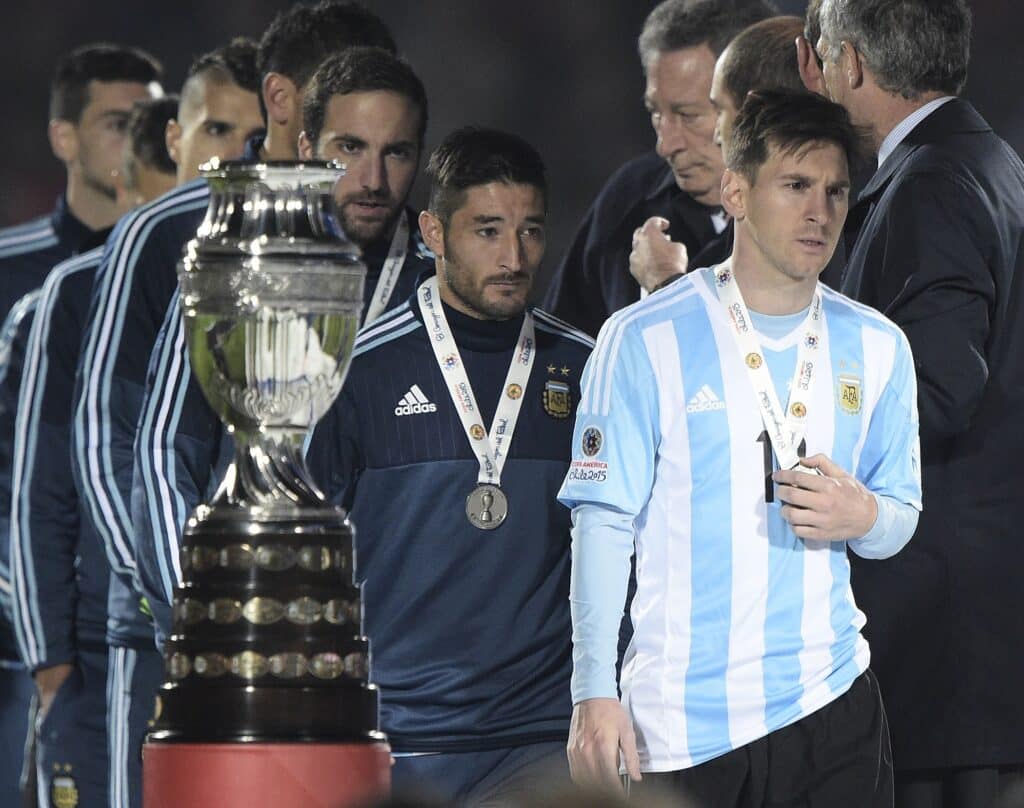
However, only one week after announcing his shock retirement from Argentina service, Argentinian newspaper La Nacion reported that Messi was reconsidering playing for La Albiceleste at the 2018 FIFA World Cup Qualifiers in September. On the 12th of August, only 47 days after retiring from international football, it was confirmed that Leo reversed his decision and was going to play for Argentina in the near future. He was in for the long run. He was in for the fight. Only 5 years later, the relentless and devastating international disappointment would finally come to an end.
The 2021 Copa America, Messi’s 6th time competing in South America’s continental competition, would go on to become a historic tournament for La Albiceleste which would return them to global football domination. The 47th edition of the Copa America would be hosted by reigning champions Brazil and would become a now or never situation for Messi. Given his older age of 33 years old, Messi was nearing the end of his career and needed to fulfill his duty as Argentina’s captain and bring a trophy back to the nation.
A dominant tournament saw La Albiceleste concede 3 goals and score 11 in 6 total matches leading into the final. Reversing their dearth of luck in penalty shootouts, Argentina defeated Colombia in the semi-finals on penalties where goalkeeper Emiliano Martinez made a name for himself with his penalty distracting antics.
The 10th of July 2021 would see Argentina play Brazil in the Copa America final on the latter’s home turf. Recent history had not been too fortunate or favorable for La Albiceleste against the Selecao, with the Argentinians not defeating the Brazilian national team in a competitive game since the 8th of June 2005. Add on to this Argentina’s woeful recent final record in the Copa America, Messi’s side were in for a tough night. But, in an astonishing game in the Maracana Stadium in Rio de Janeiro, Angel Di Maria’s 22nd minute strike ended up being the only goal in the game and won Argentina their first major trophy since 1993.
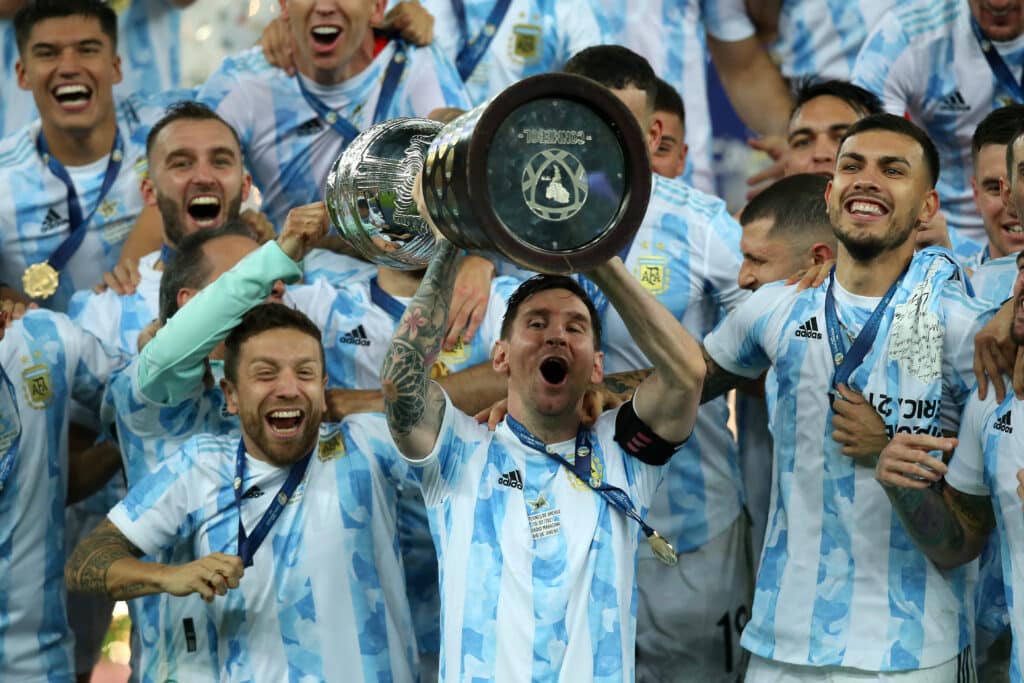
Messi had done it! He had finally brought a trophy back to Argentina and had given the Argentinian faithful something to cherish from his illustrious football career. However, he was not done yet and only 2 years later the Qatar World Cup would become the biggest tournament in La Pulga’s acclaimed career. With 7 goals throughout the tournament, Messi would lead Argentina to their 3rd ever World Cup win and establish himself as the G.O.A.T of ‘The Beautiful Game’. Breaking records left, right and center, the 2022 World Cup would go on to become Messi’s most impressive and outstanding tournament to date as he completely dominated the world’s best at the age of 35 years old.
Fast forward to today: Messi is La Albiceleste’s top goal scorer in history and most capped player with 102 goals in 174 games for Argentina’s national side. To go along with this, La Pulga is one of 3 World Cup winning captains for Argentina, placing his name alongside legends Diego Maradona and Daniel Passarella. The 35 year old is also the record holder for most appearances at a World Cup as captain of any national team with 19 games captaining Argentina. Additionally, Leo Messi has scored the most World Cup goals for La Albiceleste with 13. He is followed by Argentinian legends Gabriel Batistuta (10) and Diego Maradona (8).
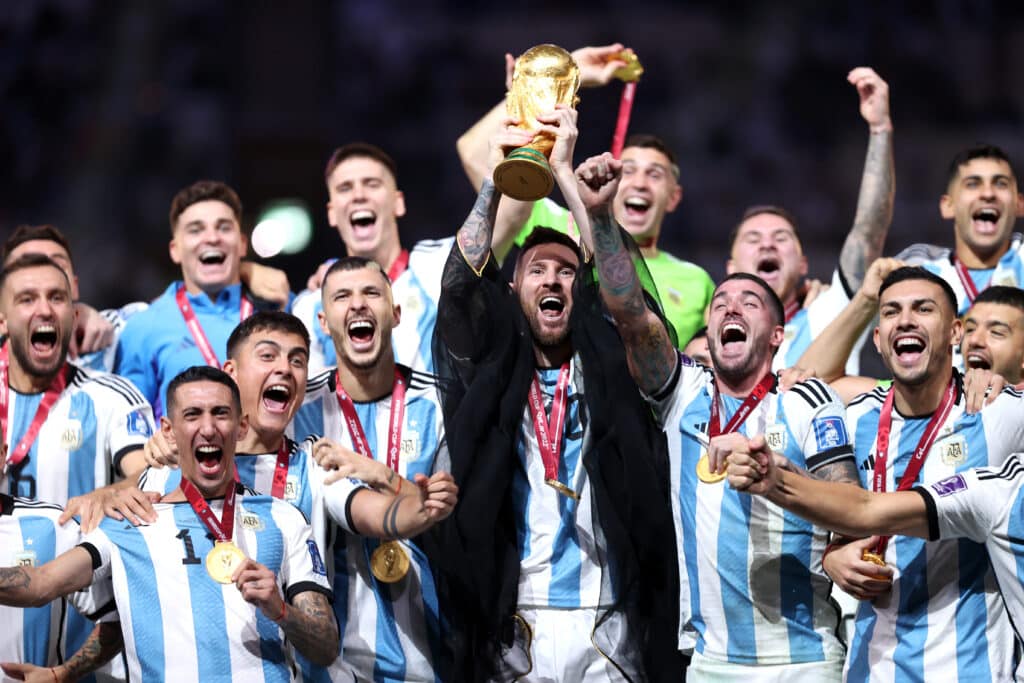
The previous week has further immortalized Leo Messi in the football world. On the 24th of March, Leo Messi scored his 62nd career free kick as Argentina dominated Panama in a 2-0 win in an international friendly. The following day the Argentina Football Association’s training facility, previously known as Casa de Ezeiza, would be renamed as Lionel Andres Messi complex. AFA’s president announced this and praised Messi as “the best player in the world”. 2 days later, the South American Football Federation would announce that a life-sized statue of Argentina’s captain would stand in the federation’s museum. Prior to the Copa Libertadores draw on Monday at the CONMEBOL headquarters in Luque, Paraguay, a statue of Messi holding a replica of the World Cup trophy was revealed. This statue will be placed alongside Diego Maradona’s and Pele’s statue in what is a representation of Messi’s greatness and contribution to South American football. To put the cherry on top of a fantastic week for La Pulga, his national side thrashed Curacao 7-0 in a game which saw Messi score his 100th, 101st and 102nd goals for La Albiceleste. Messi’s 55th career hattrick edges him closer to Ronaldo’s’ record of 62 career hattricks for all active players.

From public enemy number 1 to being immortalized and ultimately celebrated as the greatest of all time, Lionel Messi’s international career is one filled with drama and hysteria for fans of the Albiceleste. For those who have had the pleasure of watching Messi’s Argentinian journey unfold, the 2021 Copa America victory and succeeding 2023 World Cup campaign would both be heart-warming moments.
Ultimately, the football world would be completely different had Messi stuck to his decision and retired from international football in 2016. Luckily enough for all aficionados of ‘The Beautiful Game’, La Pulga dug deep and continued to be resilient in what is a symbol of the significance of determination and resilience. This symbol will likely inspire future Argentinians and all football fans worldwide to persevere and never give up in their pursuit of football greatness.
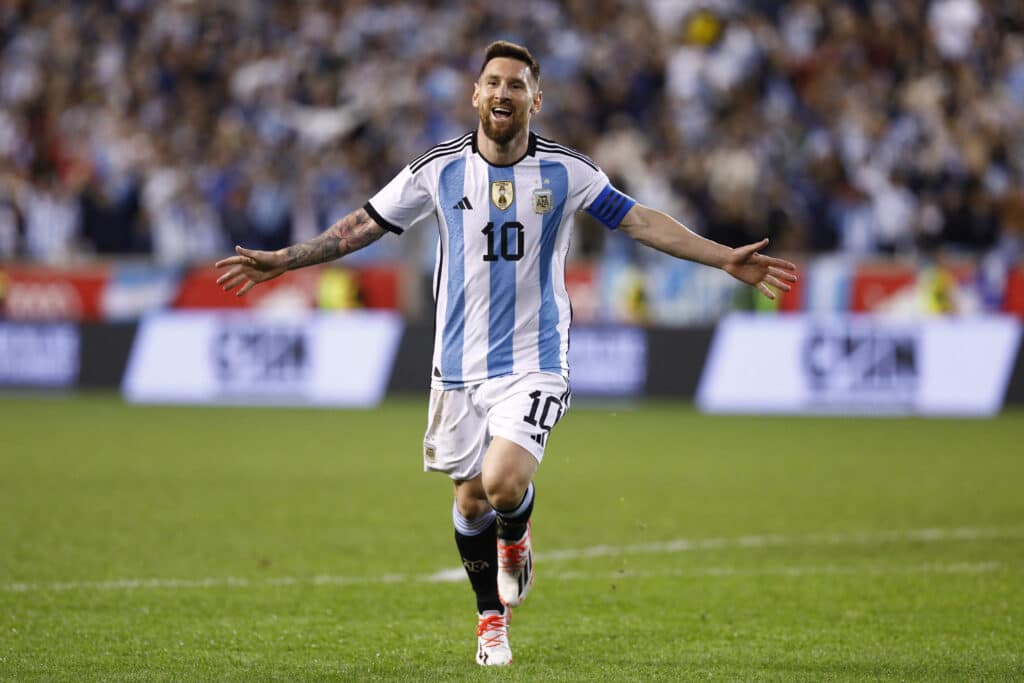
[ays_poll id=6]
[ays_poll id=7]



